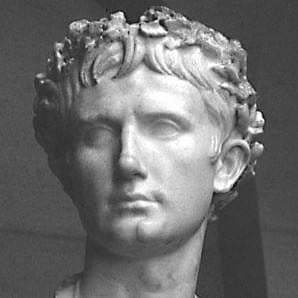
The First Book Of The Odes Of Horace (Chap.1) Quintus Horatius Flaccus (Ft. C. Smart)
На этой странице вы найдете полный текст песни "The First Book Of The Odes Of Horace (Chap.1)" от Quintus Horatius Flaccus (Ft. C. Smart). Lyrxo предлагает вам самый полный и точный текст этой композиции без лишних отвлекающих факторов. Узнайте все куплеты и припев, чтобы лучше понять любимую песню и насладиться ею в полной мере. Идеально для фанатов и всех, кто ценит качественную музыку.

Ode I
To Maecenas
Maecenas, descended from royal ancestors, O both my protection and my darling honor! There are those whom it delights to have collected Olympic dust in the chariot race; and [whom] the goal nicely avoided by the glowing wheels, and the noble palm, exalts, lords of the earth, to the gods.
This man, if a crowd of the capricious Quirites strive to raise him to the highest dignities; another, if he has stored up in his own granary whatsoever is swept from the Libyan thrashing floors: him who delights to cut with the ho his patrimonial fields, you could never tempt, for all the wealth of Attalus, [to become] a timorous sailor and cross the Myrtoan sea in a Cyprian bark. The merchant, dreading the south-west wind contending with the Icarian waves, commends tranquility and the rural retirement of his village; but soon after, incapable of being taught to bear poverty, he refits his shattered vessel. There is another, who despises not cups of old Massic, taking a part from the entire day, one while stretched under the green arbute, another at the placid head of some sacred stream.
The camp, and the sound of the trumpet mingled with that of the clarion, and wars detested by mothers, rejoice many.
The huntsman, unmindful of his tender spouse, remains in the cold air, whether a hart is held in view by his faithful hounds, or a Marsian boar has broken the fine-wrought toils.
Ivy, the reward of learned brows, equals me with the gods above: the cool grove, and the light dances of nymphs and satyrs, distinguish me from the crowd; if neither Euterpe withholds her pipe, nor Polyhymnia disdains to tune the Lesbian lyre. But, if you rank me among the lyric poets, I shall tower to the stars with my exalted head.
To Maecenas
Maecenas, descended from royal ancestors, O both my protection and my darling honor! There are those whom it delights to have collected Olympic dust in the chariot race; and [whom] the goal nicely avoided by the glowing wheels, and the noble palm, exalts, lords of the earth, to the gods.
This man, if a crowd of the capricious Quirites strive to raise him to the highest dignities; another, if he has stored up in his own granary whatsoever is swept from the Libyan thrashing floors: him who delights to cut with the ho his patrimonial fields, you could never tempt, for all the wealth of Attalus, [to become] a timorous sailor and cross the Myrtoan sea in a Cyprian bark. The merchant, dreading the south-west wind contending with the Icarian waves, commends tranquility and the rural retirement of his village; but soon after, incapable of being taught to bear poverty, he refits his shattered vessel. There is another, who despises not cups of old Massic, taking a part from the entire day, one while stretched under the green arbute, another at the placid head of some sacred stream.
The camp, and the sound of the trumpet mingled with that of the clarion, and wars detested by mothers, rejoice many.
The huntsman, unmindful of his tender spouse, remains in the cold air, whether a hart is held in view by his faithful hounds, or a Marsian boar has broken the fine-wrought toils.
Ivy, the reward of learned brows, equals me with the gods above: the cool grove, and the light dances of nymphs and satyrs, distinguish me from the crowd; if neither Euterpe withholds her pipe, nor Polyhymnia disdains to tune the Lesbian lyre. But, if you rank me among the lyric poets, I shall tower to the stars with my exalted head.
Комментарии (0)
Минимальная длина комментария — 50 символов.












